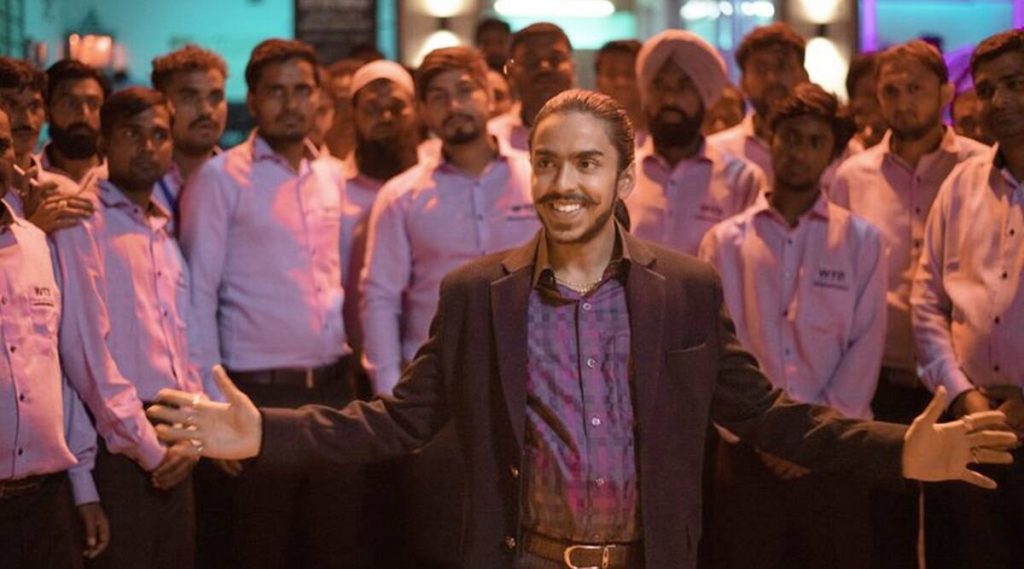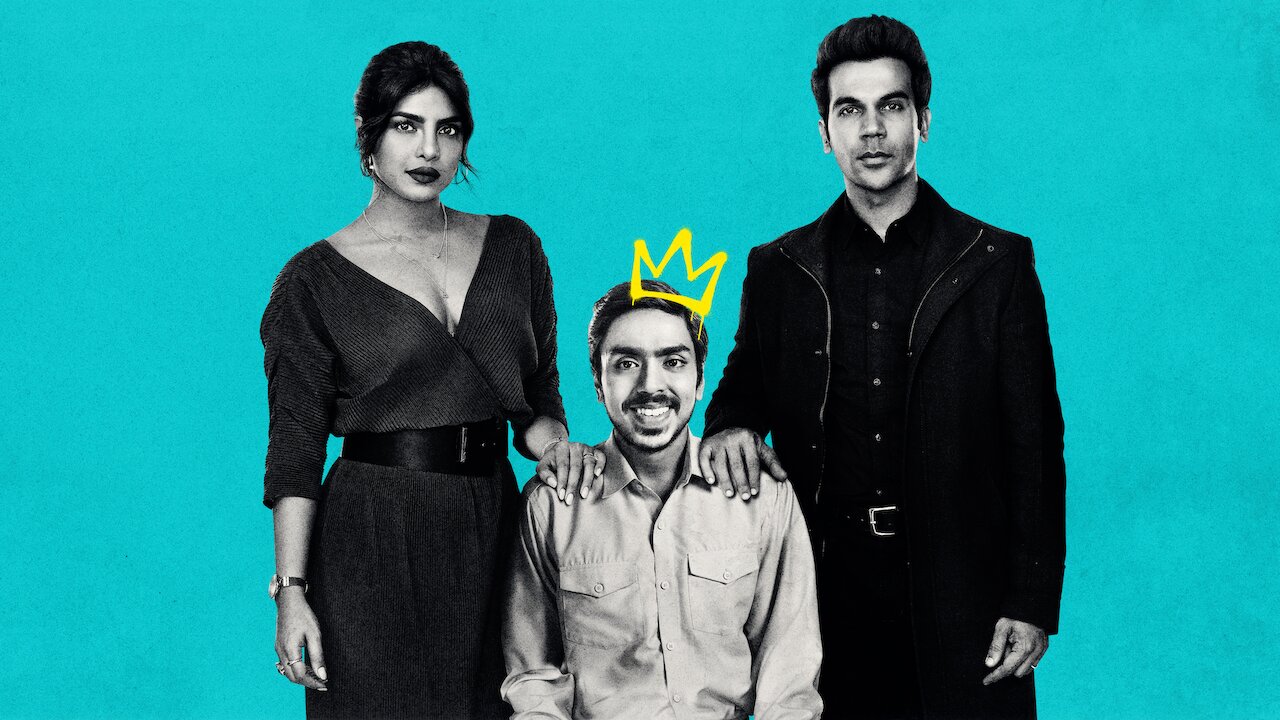“The story of a poor man’s life is written on his body, in a sharp pen.”
Directed by Ramin Bahrani, Netflix’s The White Tiger is a gripping adaptation of Arvind Adiga’s Booker Prize winning novel of the same name. Apart from a thought-provoking plot, the movie also boasts masterful cinematography, compelling narrative style and outstanding performances by the star studded cast (Priyanka Chopra Jonas, Rajkumar Rao and newcomer Adarsh Gourav).
The audiences learn of the protagonist’s fate early and even catch glimpses of the movie’s pivotal turning point in the trailer itself. Still the movie manages to keep audiences interested in how that outcome came to be through it’s runtime of 125 minutes.
This class parable tells a tale of betrayal, corruption, soul-devouring ambition and class privilege- a movie trend cinephiles might remember from Slumdog Millionaire or the more recent Parasite. Yet, The White Tiger just does it with darker undertones and effortlessly delivered dialogue that is bound to leave lasting impressions.

The plot weaves a complex story of servitude, loathing and at a point, betrayal between the lower-class, ambitious and bright Balram and his modern-thinking “Americanized” master, Ashok. Characters like The Stork (Mahesh Manjrekar), The Mongoose (Vijay Maurya) and The Great Socialist (Swaroop Sampat) only portray one sided aspects- namely, corruption, cruelty and exploitation. But it is through the characters of Balram, Ashok and Ashok’s Indian-American wife Pinky, that the true conflicts of the movie shine through. While the American- educated couple are shown to be the only ones with some sympathy for their driver, that friendliness is only extended till a certain point. Especially in Ashok’s character the conflicts are more prominent- attempting to go beyond the class barrier whilst also accepting his family’s exploitation of Balram or being friendly to the driver before using him as a scapegoat. At the same time, while the viewers are made to sympathize with Balram for the greater part of the movie, the final outcome of his ruthless ambition is hard to support.
Other than pivotal moments of the movie being revealed very early and the lengthy runtime, the protagonist’s actual rise to success feels rushed at the end- a common flaw in book adaptations with a limited time frame. Despite, The White Tiger skillfully treads the moral greys between the sins of the rich and that of the poor propelled by Adarsh Gourav’s powerful acting.
Gourav as Balram is excellent in his slippery, hard to like, harder to hate role as he breaks out of the “Rooster Coop” to become the creature born only once every generation: The White Tiger.
Overlooking the few shortcomings, with an IMDB rating of 7.2/10, 91% rating at Rotten Tomatoes and the title of “Netflix No.1” across 64 countries, The White Tiger is definitely a class parable that is a class apart. Is a poor man’s merciless ambition to escape the “Dark” truly unforgivable or do the ends justify the means in a cut-throat society of systematic exploitation? You be the judge.
“You ask ‘Are you a man or a demon?’ Neither, I say. I have woken up, and the rest of you are sleeping, and that is the only difference between us”







